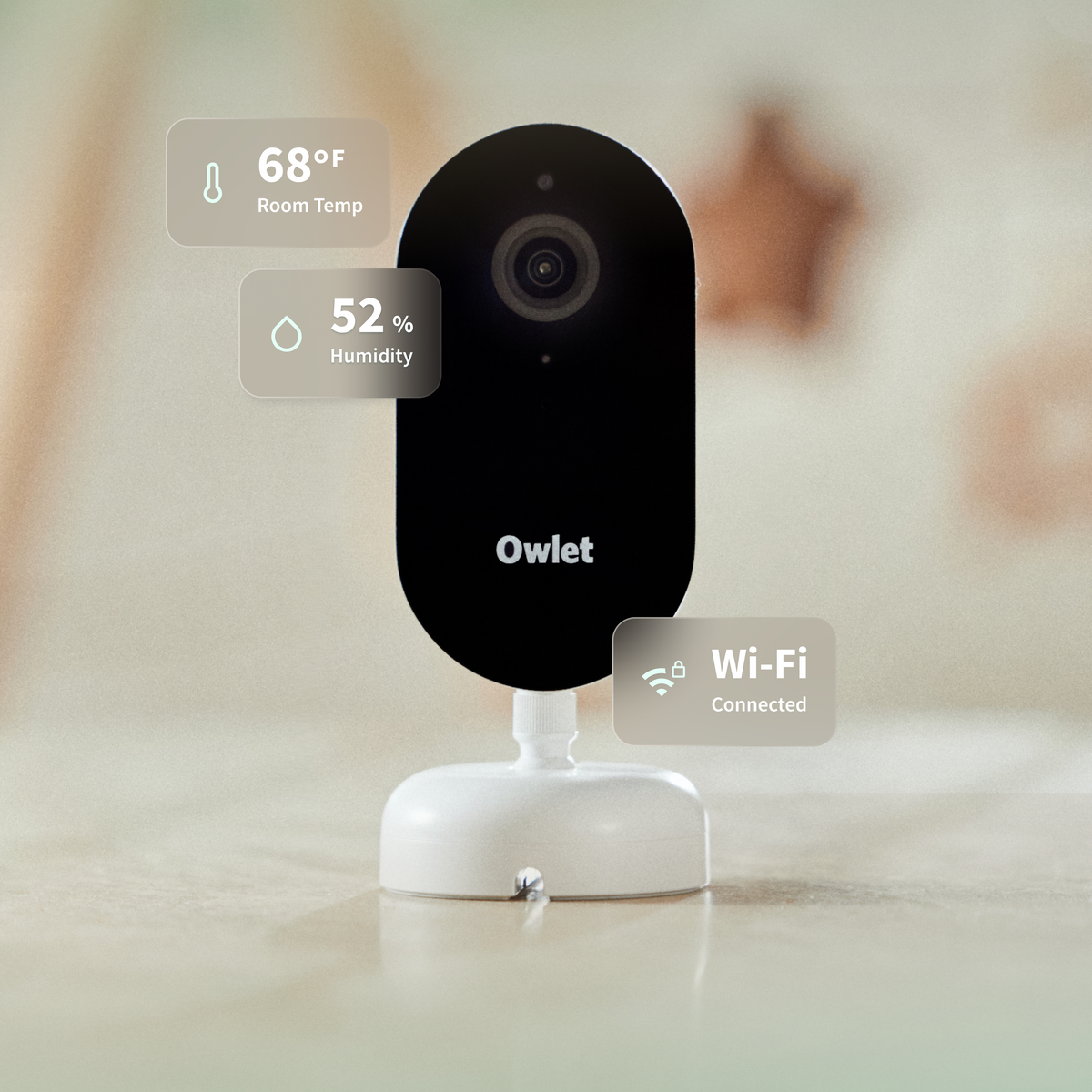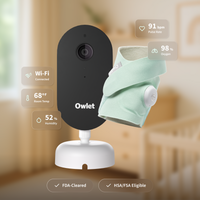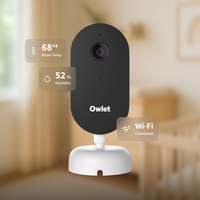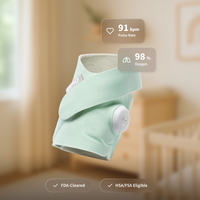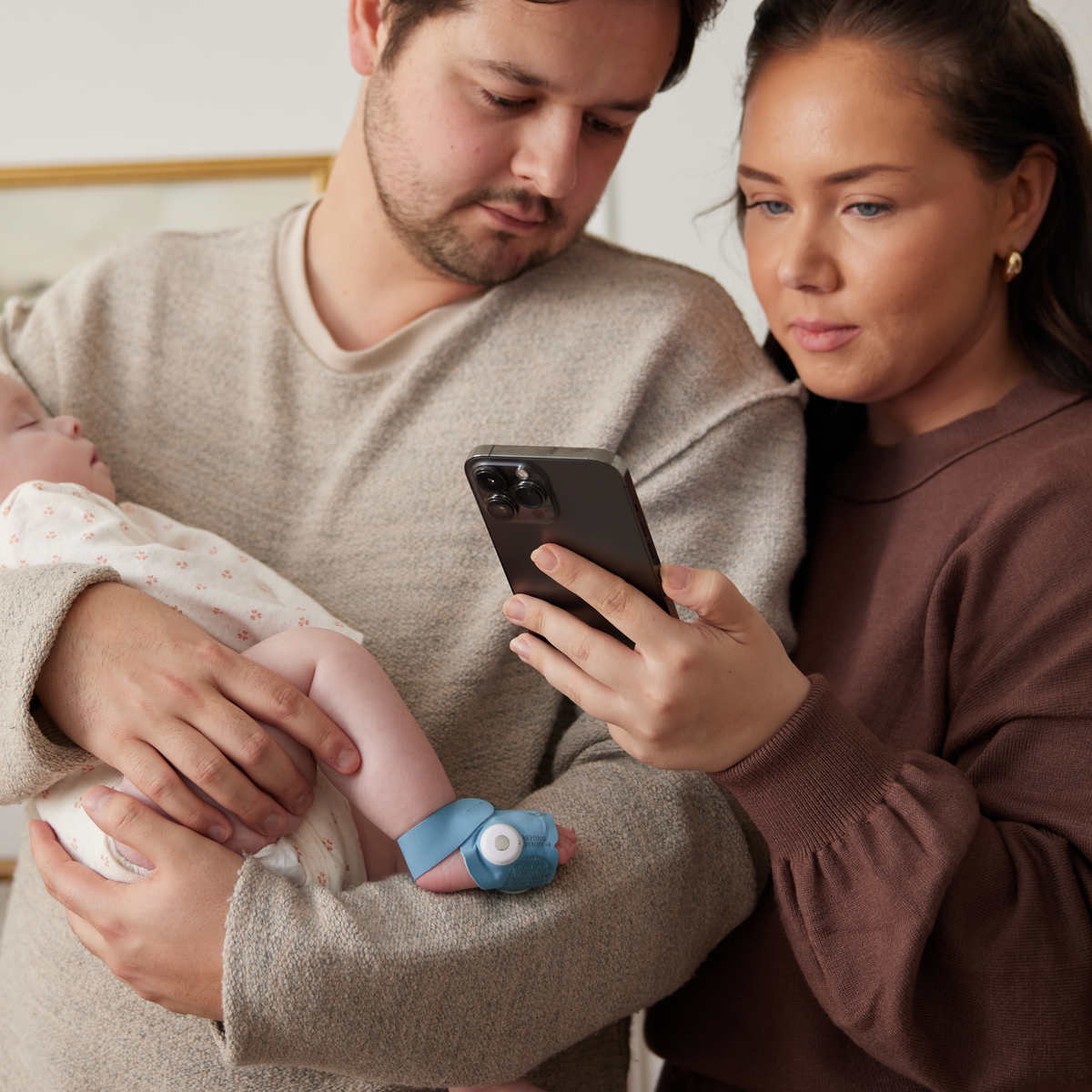October is Pregnancy and Infant Loss Awareness Month, and though it’s not a topic that many people like to talk about, it’s important that we do. Miscarriage, stillbirth, and infant death are all incredibly heartbreaking experiences, but they unfortunately happen more often than we might think. In this post, we'll highlight a few statistics on infant loss and share how we’re getting involved to support every baby and every parent.
What is Pregnancy and Infant Loss Awareness Month?
Pregnancy and Infant Loss Awareness Month is a time to remember and honor babies who have died during pregnancy, at birth, or in infancy. This month also raises awareness about the prevalence of these losses and provides support for those who have experienced them.
Our Mission
At Owlet, our mission is to reach every baby and every parent. Part of this mission includes providing a safe and supportive place for parents to celebrate and honor the little ones who are no longer with us.
Each October, we stand in support with families all over the world who are recognizing Pregnancy and Infant Loss Awareness Month.
Nursery of Hope
Owlet’s Nursery of Hope is a nationwide event where we come together with parents, families, and friends to plant a legacy tree in memory of the babies who are gone—but never forgotten—during the month of October.
Part of our work includes our partnerships with more than 20 non-profit organizations across the country who also share in our mission in supporting every baby and every parent. Many of the nonprofit groups we work with hold their own Nursery of Hope plantings, such as the Briggs & Barrett Project of Nebraska. Over the last three years, they’ve planted 80 trees since launching the project with Owlet, and they plan to break ground on a second location in 2023.
“It brings so much happiness, joy and sadness all at the same time. We love to be able to give every family one day a year where they block out a couple hours to just relax, read books, play catch, chalk the sidewalk, play games, and create memories with their Angel,” says Melissa West, CEO and Co-Founder of The Briggs & Barrett Project. Families walk this park every day and watch it grow. We will continue to honor these angels today and forever.”


Similarly, Knox Blocks Foundation hosted their annual Nursery of Hope event in Iowa. 75 people attended and helped plant 21 trees at Hickory Hills Park.
Co-founder Elisha Palmer says, "The Nursery of Hope is more than a tree planting ceremony. It's creating a beautiful and sacred space where pregnancy and infant loss families can go to reflect, remember and connect with the child they lost. That gift is priceless."



Learn More About Pregnancy & Infant Loss Month
How Common are Pregnancy and Infant Losses?
According to the National Library of Medicine, about 1 in 4 recognized pregnancies end in loss. And while most of these losses happen early on in pregnancy, late-term miscarriages and stillbirths do occur.
The American College of Obstetricians and Gynecologists (ACOG) reports that the majority of spontaneous abortions (miscarriages) happen before 13 weeks of gestation. It’s estimated that 50-75% of all pregnancies end in miscarriage, but many of these losses occur before the woman even knows she is pregnant.
Stillbirth, or the delivery of a baby after 20 weeks of gestation that results in the baby’s death, occurs in about 1 in 160 pregnancies. And while this number has decreased over the past few decades, it’s still a significant problem.
Infant death, defined as the death of a baby before his or her first birthday, occurs in about 5.4 deaths per 1,000 live births in the United States, or .54%.
How Can I Help Support Someone Who Has Experienced a Loss?
If you know someone who has experienced a pregnancy or infant loss, there are a few things you can do to help support them.
-
First, let them know that you’re there for them. This simple act can go a long way in helping them feel less alone.
-
Avoid saying things that might make them feel worse. Phrases like “Everything happens for a reason” or “At least you can get pregnant” are often unhelpful and can hurt more than they help.
-
Offer to help with practical tasks, like childcare or housework. This can take some of the burdens off of the grieving parents and give them more time to focus on healing.
-
Bring food or flowers. Oftentimes, those who have suffered a loss just don't have the energy to cook or shop for groceries. Bringing them food or flowers is a simple but much-appreciated gesture.
-
Finally, be patient. Grief is a process, and it doesn’t always follow a timeline. Understand that some days will be better than others for the person in your life that is grieving, and that’s okay and normal.
